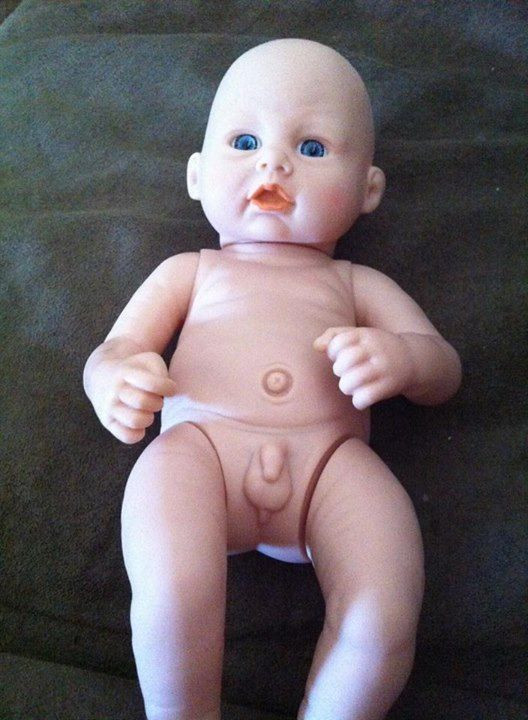Male Toys 'R' Us Doll Shocks And Terrifies With Ordinary Anatomy: When Penises Cross The Line

Pick a side, people. Are we the country that wants to keep kids innocent forever, so we shield them from all things sexual, or are we the country that believes in the freedom of sexual expression? If the choice is too overwhelming, maybe a Toys ‘R’ Us doll can help you make up your mind.
Toys ‘R’ Us, the nation’s largest toy retailer, apparently sells a doll that violates people’s deeply held beliefs about infant anatomy: It has a penis. That’s right, a molded plastic penis, scrotum and all. It’s part of the You & Me Mommy Change My Diaper collection, and it even wets itself and cries — perfect training for a toddler who just learned to kick one of those habits a third of her life ago.

Most dolls, of course, forego genitalia for a smooth and polished underside, giving no hint at the baby’s gender — but not the You & Me doll. The offending member compelled one mother to share her horror story on Facebook, writing, “I took my daughter to buy a new baby at toys r us.. And she was so excited to find a baby boy doll because it was dressed in blue.. But when she went to change his diaper, this was the surprise.. Why??”
The woman goes on to contend that little girls, such as her daughter, “don't need to know the anatomy.” But here’s the thing. Yes, they do.
Breaking The Stigma
Just about every finding in the fields of parenting and childhood development in the last decade suggest the earlier kids learn proper anatomy, with the correct vernacular and without any stigma attached, the healthier relationship they’ll have to sex and reproduction later in life. “Parents often ask, ‘How old should a child be before we start talking about sex?’” writes sexologist Louanne Cole Weston. “My answer always is: ‘Younger than you think.’”
According to Weston, carving out a half hour to address each hairy detail in the “Birds and the Bees” is the wrong approach. Instead, parents should approach human sexuality as a series of teachable moments. Kids are naturally curious, Weston says, so they’ll ask questions out of left field whether you’re prepared or not. The important point is to address each question head-on with concision. Answer only the question asked, she says. And use the right words: penis, vagina, clitoris. The meanings may be absent, but in time the strong language base will make way for fuller, healthier understanding.
On Facebook, opponents of the You & Me doll aired similar grievances as the original plaintiff. “[H]ow is that even possible. Little girls should not been shown that on dolls. The company makes me sick,” wrote one commenter. “OMG that's just not right. Why is it necessary for babies/toddlers?” said another. Each negative comment smacks of the same complaint, arguing against the use of genitalia as if it were somehow distasteful to expose young children to the natural human condition. What they’re trying to censor, of course, is biology.
Dr. Logan Levkoff, licensed sexuality educator and practicing sexologist argues stigmatizing a natural part of life can only doom kids for failure. Innocence isn’t found in shielding them from words; it’s in ensuring you are the one they turn to when they want those words defined.
“When we deliberately or inadvertently support our children's use of slang,” Levkoff explains, “it's as if we tell them: Yes, there is something gross or silly or ugly about that body part. Don't ever call it by its real name.” So yes, the boy doll has a penis. What else is new?



























